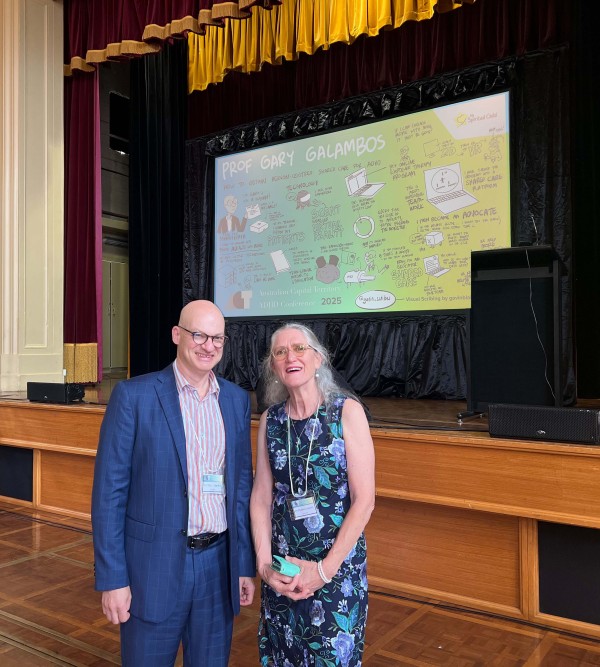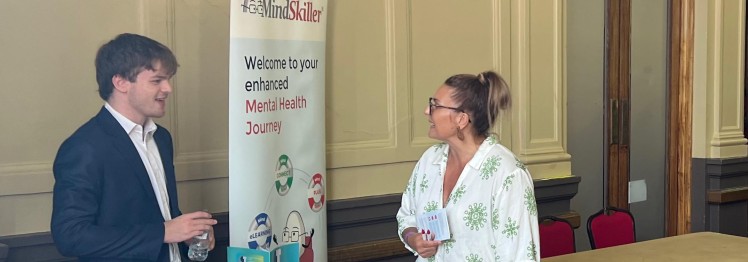MindSkiller Exhibit stand at My Spirited Child ADHD Conference in Canberra
It was a delight to attend and speak at the consumer-led self-help My Spirited Child ADHD Conference at the Grand Albert Hall in Canberra, on Sunday 23rd February 2025. Clinicians, consumers and educators can join forces to make a massive difference for this cohort as ADHD not only can cause distress, underperformance and low self-esteem, but it is a risk factor for many other mental disorders and is often co-existing with disorders or disability that can be associated with neurodiversity.
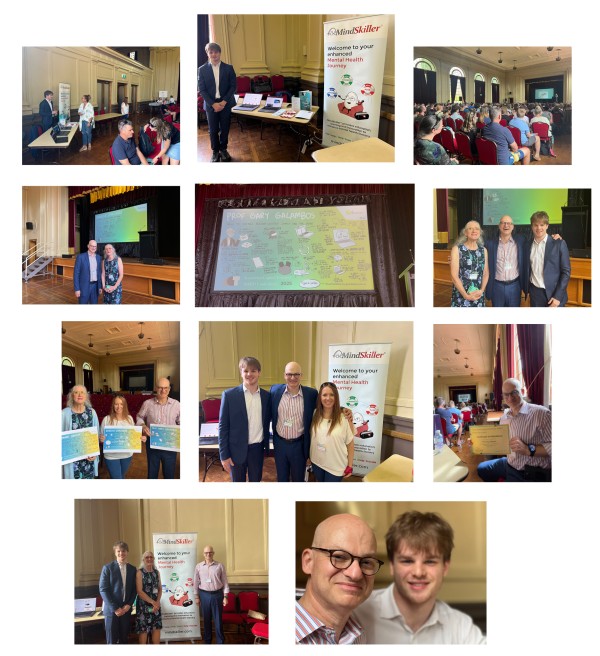
Thank you to convener Rebecca Challoner for inviting me to speak and have an exhibit stand to showcase the MindSkiller mental health utility platform. Thank you to Saul Galambos for manning the stand to explain how MindSkiller can assist the attendees whether they be consumers, clinicians or leads organisations.
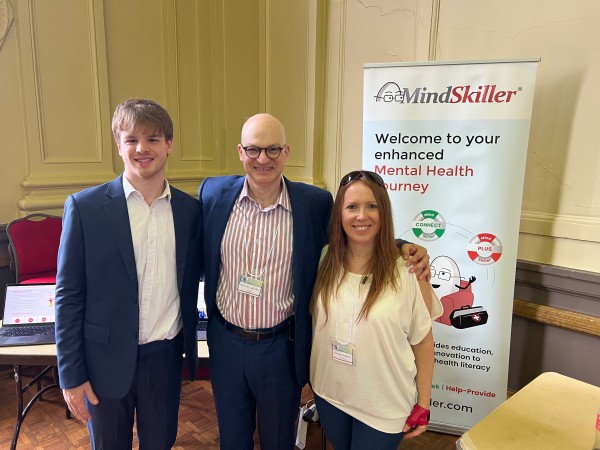
I spoke about what led me to develop the MindSkiller digital mental health literacy program, new interventions and enhanced treatment programs, focusing on young adults with mental disorders like depression, anxiety and ADHD.
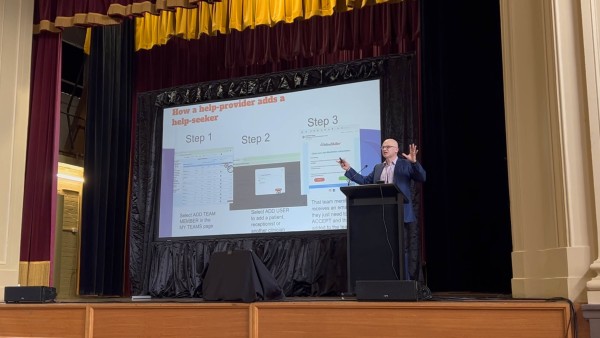
I discussed how I designed the MindSkiller eLearning program to be engaging, using playful non-overwhelming visual images, metaphor and role play. I did it with the constant thought that “if I can engage people with ADHD then I know it’s going to be a success”. That’s because if I can engage people with ADHD, it must be good, interesting or attention grabbing!
I explained how it can be used by both patients for education and health providers for training and testing it at the Uspace Young Adult Mental Health Unit at St Vincent's Private Hospital Sydney where I have been Visiting Medical Officer for the past 13 year and serve as medical director, and where a large proportion of the inpatients and outpatients have ADHD.
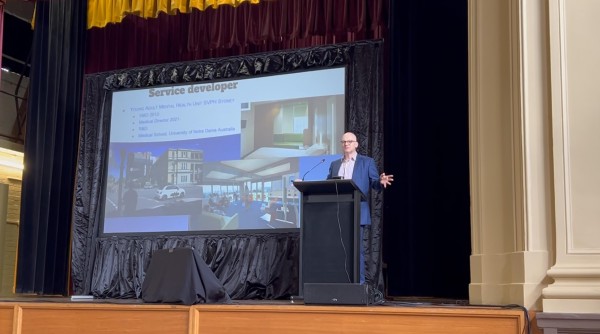
I also spoke about how the platform can facilitate coordinated healthcare delivery by creating an interconnected ecosystem of services, multidisciplinary teams and interventions, to enable:
- Coherent case management within a collaborative model of care, by utilising interactive team-based digital forms that are under the control of health providers within a multidisciplinary team
- Permissions to share information between teams of health providers controlled by patients to ensure the model remains person-centred.
I explained how I developed a prototype digital “2D” Exposure Therapy intervention for OCD (2DET) based on the advanced eLearning design, which can be used in two ways:
- To enable patients to transfer their clinical data to a Virtual Reality Exposure Therapy (VRET) intervention under the guidance and support of their clinical team for a more immersive episode of care.
- Either the 2DET intervention or the VRET intervention can also be utilised to perform “symptom provocation” for the purpose of enabling Transcranial Magnetic Stimulation (TMS) for OCD treatment to be effective with that modality.
I shared that I did all this by using my own "thorough nuisance" ADHD traits to become a disruptor in my lecture.
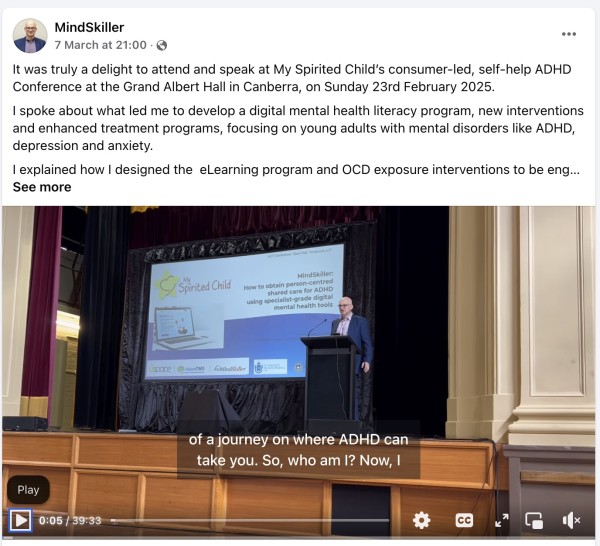
I enjoyed watching Melbourne psychiatrist Dr Diane Grocott present. Di has extensive experience developing outpatient services, clinical care pathways, advocacy (e.g. co-founder of the Victorian Adult ADHD Interest Group), GP training BeyondGP and consumer education for ADHD ReflectHealth.
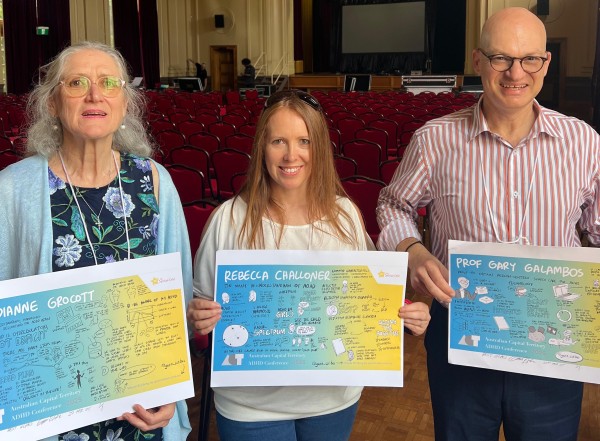
Thank you Gavin Blake for your amazing scribing of our presentations!
